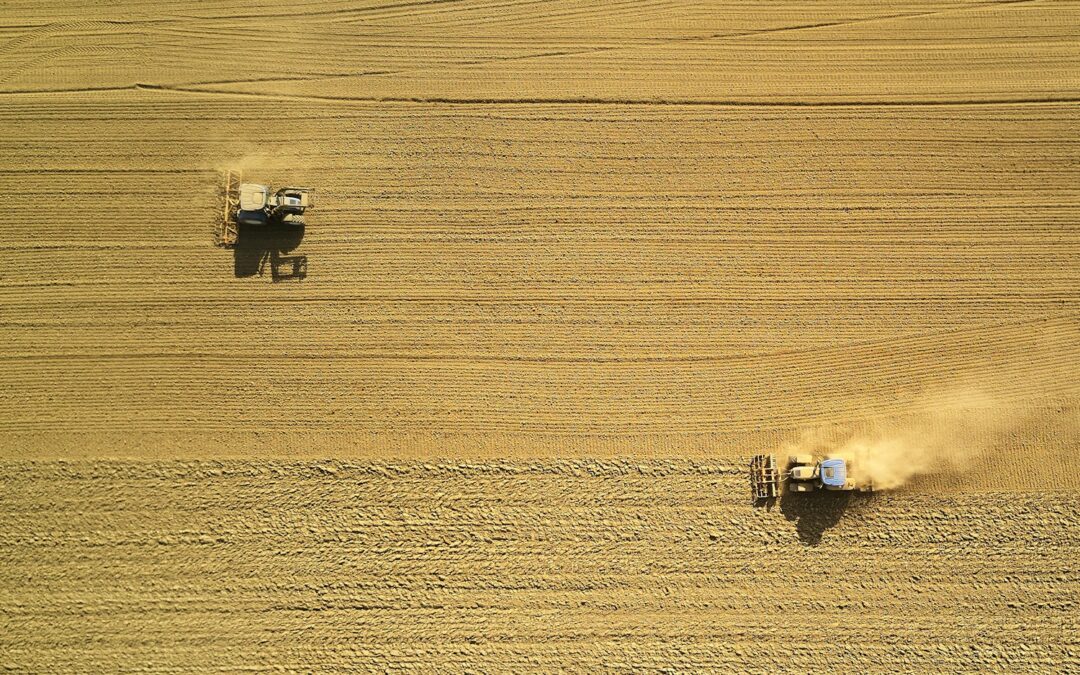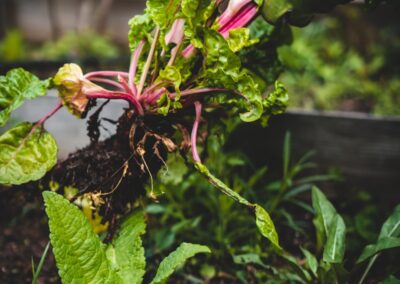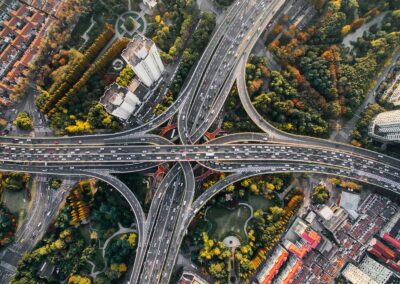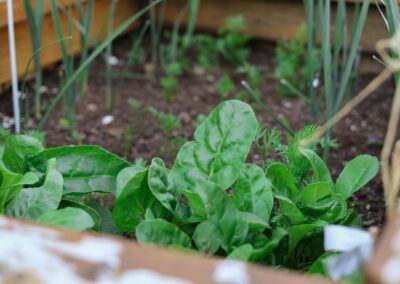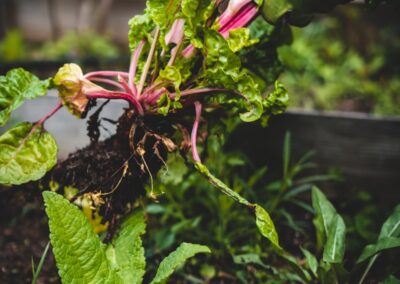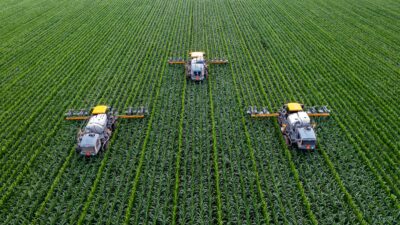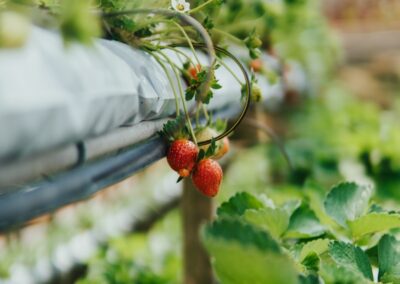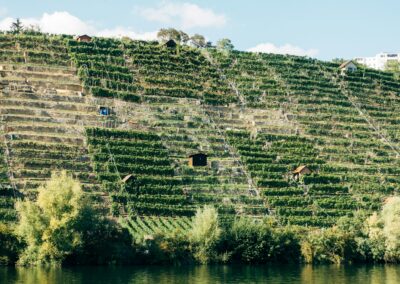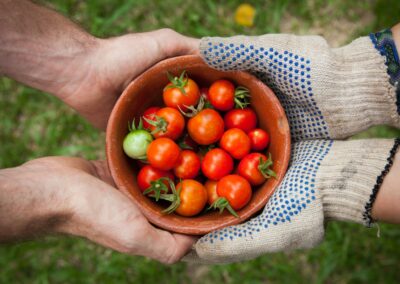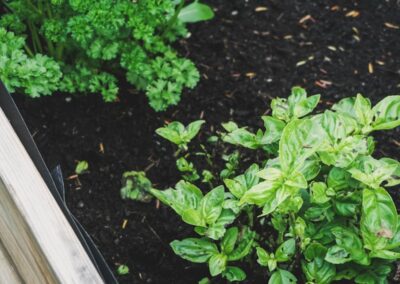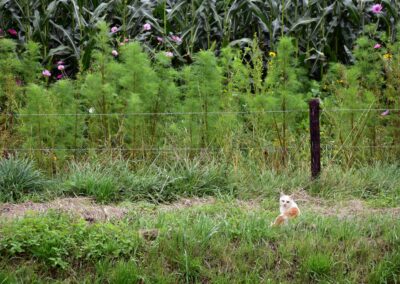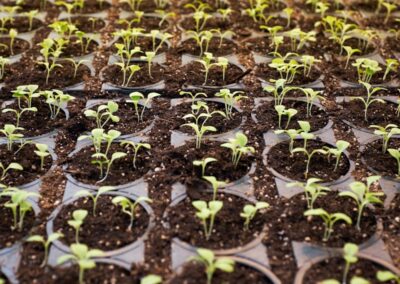The Role of Vertical Farming in the Circular Economy
Integrating Vertical Farming into Urban Landscapes
Vertical farming is revolutionizing agriculture by integrating sustainable practices into urban environments. This innovative approach to farming involves growing crops in vertically stacked layers, often incorporating controlled-environment agriculture (CEA) technology, which optimizes plant growth. In cities like Riyadh and Dubai, vertical farming is being embraced as a solution to enhance food security and promote sustainable urban living. The integration of vertical farming into urban landscapes not only maximizes space efficiency but also contributes significantly to the circular economy.
The circular economy is an economic system aimed at eliminating waste and the continual use of resources. Vertical farming contributes to this model by utilizing urban waste and byproducts as resources. For instance, organic waste from households and businesses can be composted and used as nutrient-rich soil for vertical farms. This process reduces the amount of waste sent to landfills and provides essential nutrients for crops, promoting a sustainable cycle of resource use. In Riyadh, initiatives are being developed to integrate vertical farms into urban planning, turning organic waste into a valuable resource.
Moreover, the use of advanced technologies such as Artificial Intelligence (AI) and Blockchain in vertical farming enhances efficiency and transparency. AI systems can monitor plant health, optimize water and nutrient usage, and predict crop yields, ensuring high productivity with minimal waste. Blockchain technology can provide transparent records of the entire farming process, from waste collection to crop distribution, ensuring accountability and trust among consumers. Dubai is at the forefront of adopting these technologies, making its vertical farms models of sustainability and innovation.
Maximizing Resource Efficiency through Vertical Farming
Vertical farming offers a unique opportunity to maximize resource efficiency in urban areas. By using hydroponic or aeroponic systems, vertical farms can grow crops with significantly less water than traditional farming methods. These systems recirculate water, minimizing waste and ensuring that plants receive optimal hydration. In water-scarce regions like Saudi Arabia and the UAE, this efficiency is crucial for sustainable agriculture. Vertical farms in Riyadh, for example, are designed to use up to 90% less water compared to conventional farming, addressing the region’s water scarcity challenges.
Additionally, vertical farming reduces the need for pesticides and herbicides, as the controlled environment minimizes exposure to pests and diseases. This reduction not only benefits the environment by decreasing chemical runoff but also ensures healthier produce for consumers. In Dubai, vertical farms are leveraging this advantage to produce organic and pesticide-free crops, catering to the growing demand for healthy and sustainable food options.
Furthermore, vertical farming can utilize renewable energy sources such as solar power to operate lighting and climate control systems. By integrating solar panels and energy-efficient LED lights, vertical farms can significantly reduce their carbon footprint. This integration aligns with the circular economy principles by reducing reliance on non-renewable energy sources and promoting the use of renewable resources. In cities like Riyadh and Dubai, where solar energy is abundant, vertical farms can operate sustainably and contribute to urban resilience against climate change.
Economic and Social Benefits of Vertical Farming
The economic and social benefits of vertical farming extend beyond environmental sustainability. By bringing food production closer to urban consumers, vertical farms can reduce transportation costs and emissions associated with food distribution. This proximity also allows for fresher produce, enhancing food quality and reducing spoilage. In Dubai, vertical farms are strategically located near urban centers, ensuring that residents have access to fresh and locally grown produce year-round.
Vertical farming also creates new economic opportunities and jobs in urban areas. The development and operation of vertical farms require a diverse range of skills, from agricultural expertise to technology management. This demand can stimulate job creation and economic growth in cities like Riyadh and Dubai. Moreover, vertical farms can serve as educational hubs, offering training and awareness programs on sustainable agriculture practices. These initiatives can foster a culture of sustainability and innovation among urban residents, contributing to long-term community development.
Socially, vertical farming can enhance community resilience and food security. By producing food locally, cities can reduce their dependency on external food sources, which is particularly important in times of global supply chain disruptions. Vertical farms can also be integrated into community spaces, promoting social interaction and engagement around food production. In Riyadh, community vertical farms are being established to involve residents in sustainable agriculture, fostering a sense of ownership and connection to their food sources.
Implementing Vertical Farming for Business Success
Business Strategies for Sustainable Vertical Farming
For business executives, mid-level managers, and entrepreneurs, investing in vertical farming presents a lucrative opportunity to align business success with sustainability goals. Developing a vertical farming venture requires strategic planning and a clear understanding of market demands. In cities like Riyadh and Dubai, where there is a high demand for fresh and sustainable produce, vertical farming businesses can thrive by offering innovative and eco-friendly solutions.
One effective strategy is to leverage partnerships with local governments, businesses, and communities. Collaborative efforts can facilitate access to resources, funding, and support for vertical farming projects. For instance, partnering with municipal waste management services can ensure a steady supply of compostable organic waste for vertical farms. In Dubai, public-private partnerships are being formed to integrate vertical farming into urban infrastructure, demonstrating the potential for collaborative success.
Additionally, incorporating advanced technologies such as AI and Blockchain can enhance operational efficiency and transparency. AI can optimize farming processes, from monitoring plant health to automating irrigation systems, reducing labor costs, and increasing productivity. Blockchain can provide secure and transparent records of the entire supply chain, ensuring traceability and trust among consumers. By adopting these technologies, vertical farming businesses in Riyadh and Dubai can differentiate themselves as leaders in innovation and sustainability.
Leadership and Management in Vertical Farming
Effective leadership and management are crucial for the success of vertical farming ventures. Leaders must champion sustainability and innovation, setting a vision that aligns with the principles of the circular economy. In regions like Saudi Arabia and the UAE, where cities like Riyadh and Dubai are at the forefront of technological advancement, strong leadership can drive the adoption of vertical farming practices.
Leaders should foster a culture of continuous improvement and learning within their organizations. This involves staying updated with the latest advancements in vertical farming technologies and practices, and encouraging employees to participate in training and development programs. By building a knowledgeable and skilled workforce, vertical farming businesses can maintain high standards of productivity and sustainability.
Moreover, leaders must prioritize stakeholder engagement and collaboration. This includes working closely with local communities, government agencies, and industry partners to ensure the successful implementation of vertical farming projects. In Riyadh and Dubai, engaging stakeholders in the planning and execution of vertical farms can enhance community support and participation, contributing to the overall success and sustainability of these ventures.
Project Management for Vertical Farming Success
Effective project management is essential for the successful implementation and operation of vertical farms. Project managers play a critical role in overseeing the planning, execution, and monitoring of vertical farming projects, ensuring that they meet sustainability and business objectives. In regions like Saudi Arabia and the UAE, where large-scale urban projects are common, integrating project management best practices can drive better outcomes for vertical farming initiatives.
Comprehensive planning and risk assessment are key components of successful project management. Project managers should identify potential challenges and develop strategies to mitigate them, such as securing reliable sources of organic waste for composting or ensuring consistent access to renewable energy. By proactively addressing these challenges, project managers can create resilient and sustainable vertical farms.
Stakeholder engagement is also crucial for project success. Project managers should involve local communities, government agencies, and industry partners throughout the project lifecycle, ensuring that diverse perspectives are considered and integrated into the development process. In Dubai, where stakeholder engagement is a key focus, involving stakeholders in vertical farming projects can lead to more resilient and inclusive urban environments.
Furthermore, implementing robust monitoring and evaluation processes is essential for assessing the impact of vertical farming projects on sustainability and community building. This involves tracking key performance indicators related to resource efficiency, crop yield, and community engagement, and making necessary adjustments to improve outcomes. In Riyadh, continuous monitoring and evaluation are essential for ensuring that vertical farming initiatives remain sustainable and beneficial for urban residents.
Conclusion: Embracing Vertical Farming for a Sustainable Future
In conclusion, vertical farming offers a transformative solution for integrating sustainable agriculture into urban environments. By utilizing urban waste and byproducts as resources, vertical farming aligns with the principles of the circular economy, promoting resource efficiency and environmental sustainability. For business executives, mid-level managers, and entrepreneurs, investing in vertical farming presents a unique opportunity to achieve business success while contributing to sustainable urban development. By prioritizing innovation, ethical practices, and community engagement, regions like Saudi Arabia and the UAE can lead the way in creating sustainable and resilient skyscraper cities. Embracing vertical farming as a key component of urban planning can ensure a sustainable and prosperous future for urban communities.
#VerticalFarming #CircularEconomy #UrbanWaste #SustainableAgriculture #AI #Blockchain #Metaverse #GenerativeAI #ModernTechnology #BusinessSuccess #Leadership #ManagementSkills #ProjectManagement #SaudiArabia #UAE #Riyadh #Dubai

